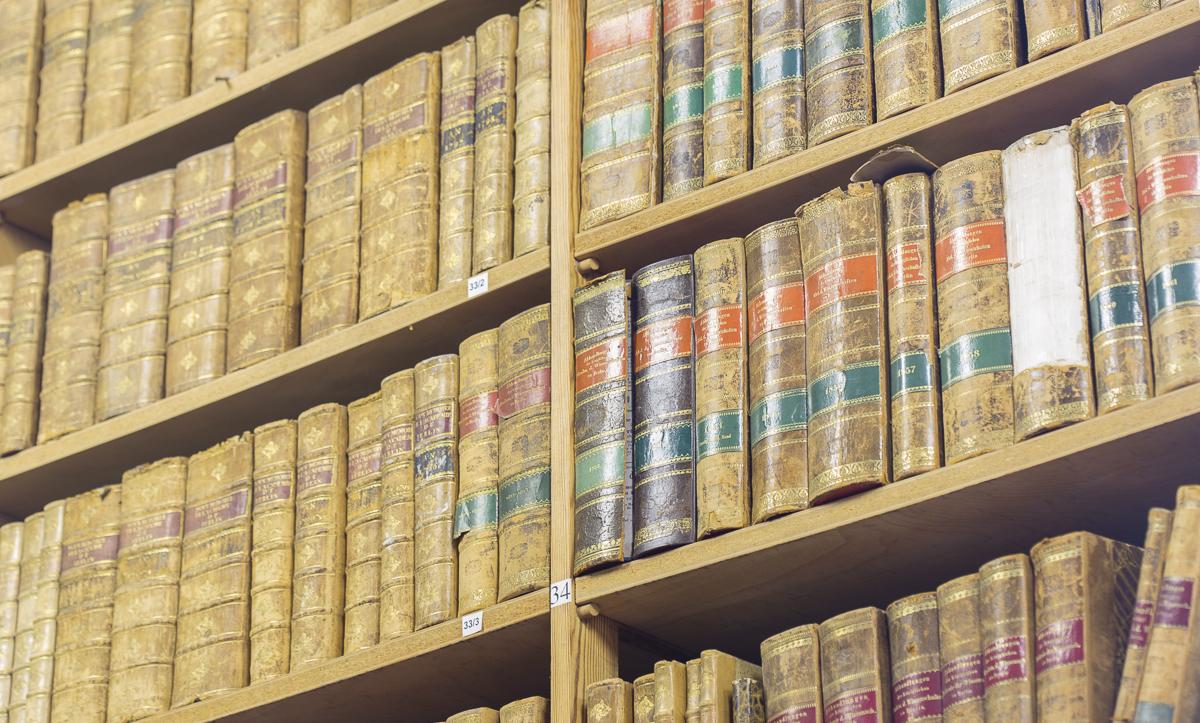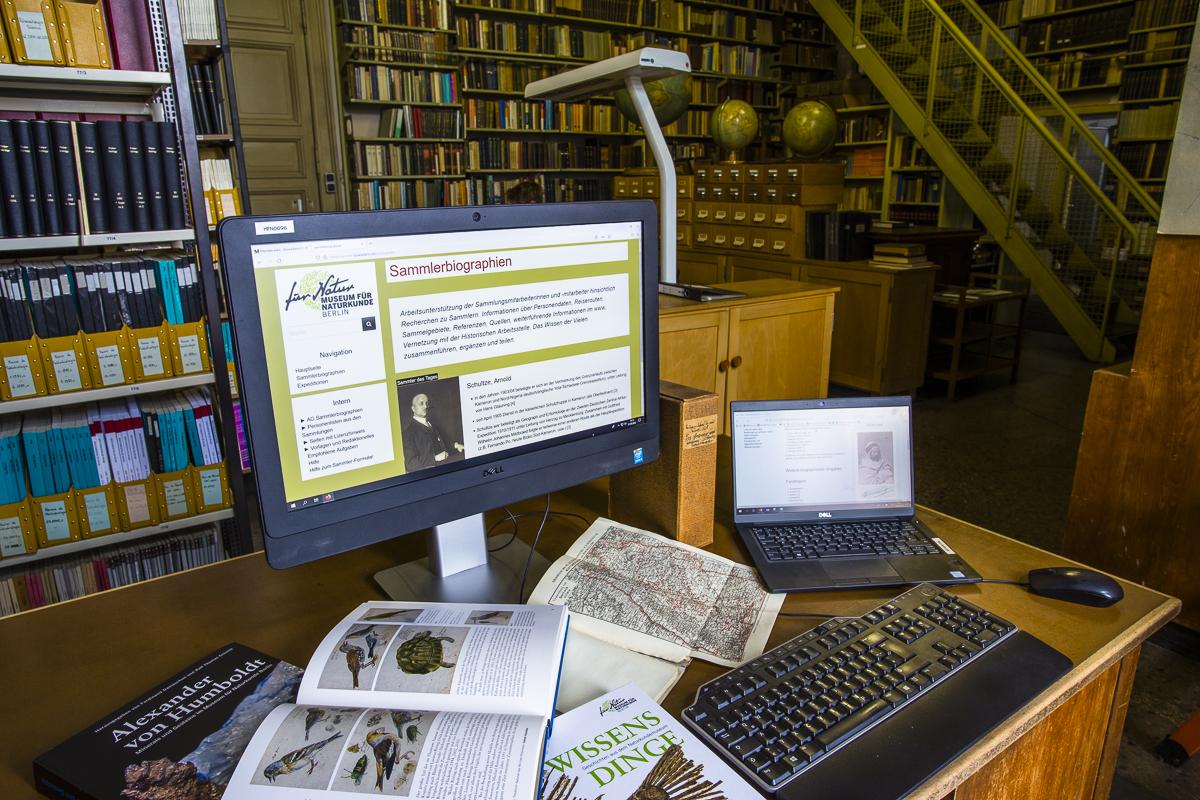By making collector data freely and openly available, the project makes an important contribution to the development and opening of the MfN collection as a global knowledge resource and thus to the development of the MfN into an open and integrated research museum.
Personal data are central nodes in the knowledge network of Linked Open Data (LOD)
The importance of open access to publications on biodiversity and geodiversity cannot be emphasized enough. The constantly growing use of identifiers (persistent identifiers, PIDs), for example for people, publications, taxa and collection objects, allows the creation of new references and promotes data integration and knowledge contextualization. Personal data can be used to link collectors to collection objects, collection localities, publications, field books and other archival materials. In addition to the scientific collection and science community. This is also of great importance for other collection-based research disciplines such as ethnology and anthropology as well as the public interested in (scientific) history. The MfN collector wiki contains valuable information on collector biographies, travel routes, collecting areas and relevant references. However, this wiki is currently only available internally, the data is rather heterogeneous and not freely accessible to be used by external parties.

Collaborative and participatory approaches intend to overcome obstacles regarding the use of open digital platforms
The aim of the project is a critical revision, opening and utilization of the information on historical collectors, including relevant people related to the MfN, such as scientists, taxidermists and scientific illustrators. Key elements are two workshops, so-called edit-a-thons, whose potential for the future is to be tested. This event format, which has not previously been used at the MfN, is similar to hackathons for programmers, but is used for editing Wikipedia articles and Wikidata items, for example.
The project might fill a gap in transdisciplinary provenance research
While the first MfN-internal edit-a-thon will enable employees to actively contribute to the collector data set through training and education, a second edit-a-thon aims at the participatory integration of a wider community of experts, institutions and hobby researchers. Still in the 20th century, a transdisciplinary collection practice was common: botanical, zoological, ethnological and anthropological objects were contributed to the collection through one and the same person. By making information about collectors available to a wider public, knowledge gaps can be closed collectively. Furthermore, it is also a prerequisite for the critical exploration of provenances and contexts of collections, therefore serving aspects of museums’ responsibility for transparency and accessibility. In addition to collectors and other scientists, underrepresented (and not or hardly visible) groups are also addressed. As result the validated data should serve as the basis for numerous future internal and external projects.
The project is located in the area of Science Data Management and is carried out in close coordination with the department of Humanities of Nature, as well as the library of the MfN / coordination office for scientific publishing (KWP) and the archive.
The following events were or will be realized as part of the collector´s project.
- 1st internal edit-a-thon at MfN (September 29 & 30, 2022)
- 2nd open Wikidata edit-a-thon (November 17 &18, 2022), as part of the tenth anniversary celebrations of Wikidata
- internal Mini edit-a-thon - introduction to Wikidata for interested members of MfN Transcription Workshop (December 5, 2022)
- strategy-meeting with members of the internal collector´s Wiki project (December 20, 2022)
- internal Mini edit-a-thon with focus on linking of archival sources of MfN, with participants from the archive, library, coordination office for scientific publishing and the Humanities of Nature department (postponed to January/February 2023)
Important sources and Wikidata-properties are listed in the WikiProject: Collectors affiliated with the MfN Berlin, alongside further informationen regarding the project and documentation of public events.
Furthermore the project was topic of the following presentations:
- “Sammlungsakteur:innen im Netz – Daten erfassen, verlinken und teilen” (Sabine von Mering), presentation at Salon Kosmos, Institut für Museumskunde (April 25, 2022)
- “Sammler:innen Edit-a-thons am Museum für Naturkunde – innovative Formatentwicklung für partizipative Wissensvernetzung” (Sabine von Mering & Erik Stolze), presentation at MfN collection café (September 5, 2022)
- “Transforming Closed Silos into Shared Resources: Opening up data on historical collection agents affiliated with the Museum für Naturkunde Berlin” (Sabine von Mering, Katja Kaiser & Mareike Petersen), presentation at TDWG 2022 in Sofia, Bulgaria (October 20, 2022) → abstract & slides
- “Wikidata - an open knowledge base” (Sabine von Mering), virtual presentation at the MfN during Open Access Week (October 28, 2022)
- “Opening up internal collection data via Wikidata“ (Sabine von Mering), invited virtual presentation at LD4 Wikidata Affinity Group (November 29, 2022)
The new Wikidata Property “collection items at” proposed by the project allows the connection of collection agents with collection holding institutions. It is now used actively in order to link important protagonists with the MfN-collections.
The following publication is summarizing the project approach and outcomes:
von Mering S, Stolze E, Kaiser K, Petersen M (2024) Sharing data, caring for collections. Open data on collection agents affiliated with the Museum für Naturkunde Berlin. Research Ideas and Outcomes 10: e118851. https://doi.org/10.3897/rio.10.e118851


